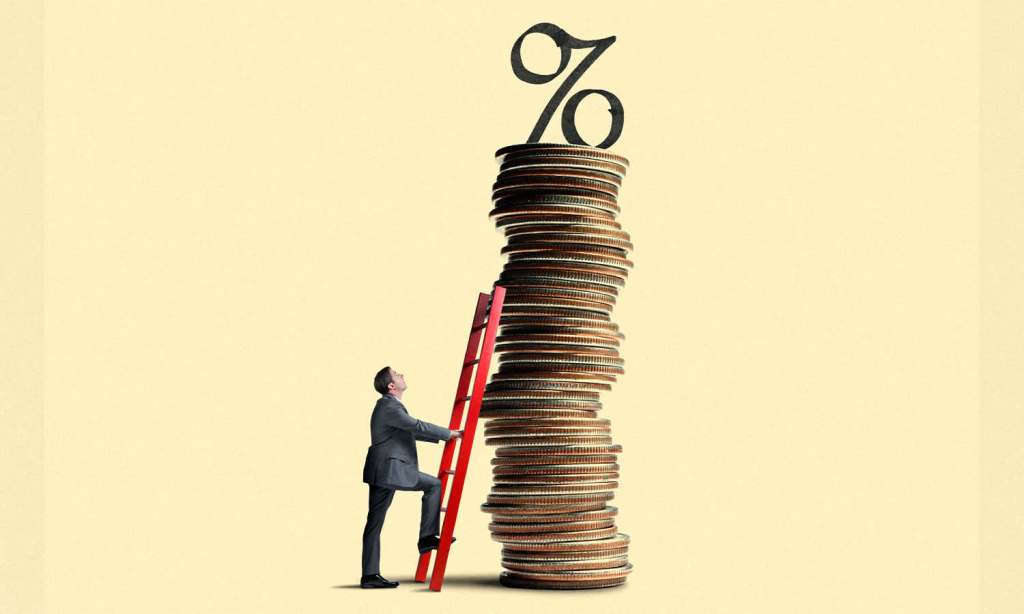A doctor friend once described the process of chemotherapy to me like this: you’re basically trying to kill the cancer faster than the treatment kills the patient. In this sense, interest rate hikes are a lot like cancer treatment.
While the RBA hikes up the cost of borrowing, mortgage holders cling on for dear life, hoping the economic illness of inflation will be thwarted before they succumb to their less-than-precise measures.
The RBA has raised interest rates for the sixth time in six months today, pushing some borrowers “to their limit.”
A $500K mortgage is going to cost an additional $9,000 per year to service, factoring in today’s rise of 25 basis points.
How long are we going to be expected to take these interest rate hits? Well, as best we can tell, a good while yet.
Why Are Interest Rates Rising?
The main driver behind the rate rises is the RBA’s desperate need to keep inflation in check. Cost of living pressures, whereby everything is getting more expensive, can only be brought under control if the bank is able to curb demand. That means making everyone poorer in the short term to avoid making everyone poor in the long term.
Of course, other factors are at play in the cost of living crisis, notably the disruption to global markets caused by the war in Ukraine, as well as the logistical hangover from the COVID pandemic. These are things the RBA, powerful as it is, has no control over. So, they hit the only button they have: the rate rise.
How Long Will Interest Rates Rise For?
This is fairly uncharted territory for the RBA — or at least, it’s been a generation or two since we’ve experienced this. You’ve got to go way back to 1994 to see interest rates rise as sharply as they have in the past six months.
Back then, as ever, interest rates were hiked to stamp out inflation while promoting growth, which it was able to do.
The problem is, 1994 was a very different time to 2022. Average household debt is much larger now than it was back then, while more people owned their own homes. Precarious living was not so common and it seems like the current plan of attack has a much higher chance of hitting people where it hurts.
However, it’s not all bad news. Graham Cooke, head of consumer research at Finder, told The Latch that we likely won’t see another increase on the scale we have over the past six months.
“Many of the panel from Finder’s latest RBA Cash Rate Survey expect this to be the last rate hike for a while, possibly until February 2023,” he said.
“However, economists are tipping a peak of around 3%, meaning one more rise is likely at some point.”
In 1994, the RBA held the newly raised interest rates in place for nearly 18 months before they slowly reduced them over the following year or so. During other periods of sharp rise, like the 1999/2000 rate rise, those numbers only held for around six months. Similar scenes occurred in 2010 when sharply spiked rates held for around a year.
The difference this time is that the problem the RBA is trying to correct is far more systemic. Demand remains high, for now, and inflation appears to still be climbing.
However, green shoots may be appearing in the fact that the housing market is taking some serious time out and that the labour market is growing. The rate hike of 25 basis points was not as large as some experts were predicting either, although this could also suggest that the RBA wants Aussies to be prepared in case the global economy really starts tanking.
“As to when rates will ease — all we can say is ‘not anytime soon’,” Cooke said.
“There are several global factors pushing interest up, and there are no signs of Putin retreating from Ukraine despite heavy losses. Things will remain unstable for a while yet.”
What this means for borrowers is that getting onto a fixed-term contract is an absolute priority. If you haven’t done so already, it’s worth looking at now. If you’ve got a loan that’s coming up for renewal soon, Cooke advises locking in another.
“For those with fixed rates due to expire — locking in a lower rate now might be a good idea, with more rate rises likely,” he said.
“Generally, two or three years are the most popular options, though if you get a very low offer, consider locking in for as long as possible.”
Related: What Happens to Homeowners If Interest Rates Rise Again?
Related: Inflation Is the Highest It’s Been in 32 Years — So What Does It Mean for Interest Rates?
Read more stories from The Latch and subscribe to our email newsletter.







